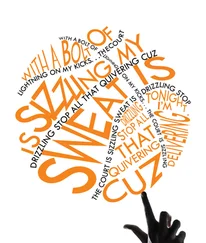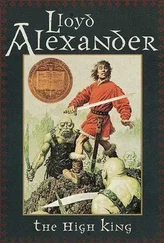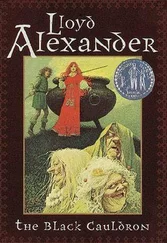He took off his cap, placed it on top of his suitcase and then gathered me in his arms. “This is the perfect time to laugh. You haven’t kissed me.”
I looked past him and saw a few security officers strolling down the path. I kissed Karl as they walked by us. We broke off our embrace as a cloud obscured the sun and cast a shadow over us. The forest around headquarters was dark enough as it was; now we seemed cast into a netherworld of green and brown, the vegetation creeping around us, the camp smothering us in its dim stranglehold.
Karl looked about in every direction and didn’t speak until he was satisfied no one was near. “The success of this action depends on one outcome—Hitler’s death. Everyone has finally come to an agreement. He must die now.”
“What about the others?” I asked.
“Time’s running out. If we don’t act now we may never have the chance. There’ve been so many attempts. Something is always wrong. Hitler has left the room unexpectedly or hasn’t shown up for an appointment. Himmler and Göring aren’t there. No more excuses. We can’t wait any longer.
“A new government will be established by those who have conceived the plan. The Wehrmacht will have no choice but to follow the orders of the new leaders. We expect resistance, but Göring and the others will be arrested and Germany will surrender to the Allies for the sake of the people. If Valkyrie fails for any reason, you must look out for yourself, Magda.”
A wash of emotions filled me. I saw the face of an avenging angel, one who would be destroyed or fly away after the plot had been launched. I was frightened by Karl’s words, happy and sad at the same time. Happy that these terrible times would come to an end; sad that we had so little time together before the world might come crashing down upon us. I touched his face, thrilled to see his smile and the life in his hazel eyes, which shredded the gloom around us.
“You must save yourself no matter what happens to me,” he continued. “If I die, you must go on. If we are separated, we must contact each other only if it’s safe. We have no say in these matters until Hitler is dead or the Reich is defeated.”
“Where will I go without you?” I asked, my voice catching.
He grabbed my shoulders and looked fiercely at me. “Listen to yourself. You are strong, Magda—I knew that from the moment I met you, even when I saw your pictures. You will know where to go, what to do. Perhaps you’ll have more than one life to save.” He reached down and rubbed his hand over my belly.
My throat tightened and a jolt coursed through my body. “A baby? How can I—”
“You must go on. We will find out soon enough whether fate rips us apart.” He picked up our suitcases and we started again toward the residence.
“How do you know—about a baby?” I asked.
“As we stood talking. It came to me.”
I sobbed for a few moments and then composed myself as best I could. I took my suitcase from his hand. “I’m not an invalid.”
We entered our small room, which contained nothing more than a bed, a small desk and a chair. It did have a window, which looked east through the forest. I couldn’t see the Führer’s bunker, the mess hall, the theater, or any of the other buildings, the surroundings were so well hidden by the deep green of the trees. I could only look into that wash of deep emerald and wonder what was to become of us.
* * *
On July 20, the bomb exploded.
The blast shook the camp. I was sitting with Else and a few of the other girls on a wooden bench outside the mess hall after the breakfast tasting, but before the afternoon lunch. The day was pleasant, if a little hot. At first we thought the explosion might be from one of the thousands of land mines surrounding the Wolf’s Lair, but this sound was different. We’d heard the mines explode at all hours of the day and night when a poor animal accidentally stepped upon them. This blast sounded heavier and closer.
It was followed by frantic shouts—not screams—none of them from women. A plume of smoke ballooned in the west, pushing its grayish veil in the air. My heart jumped and I clutched the bench’s rim. I thought of Karl and whether he might be dead. I knew the conspirators had launched Valkyrie.
Else sprang from the bench and ran toward the smoke. I wanted to follow, but I couldn’t. I remained locked upon the bench. She ran several meters toward the sound and then motioned to me and the other girls. “My God, I think someone has killed the Führer,” she shouted over the chaotic din.
Cries of help filled the air. People ran blindly in all directions, toward the blast and away from it. I imagined the worst: Karl torn limb from limb, lying dead upon the grass, or crumpled in a bloody heap with other bodies. We didn’t know where the blast occurred. “Führer, Führer,” soldiers cried out in voices choked with emotion.
I rose slowly from the bench and walked toward the commotion. My legs took me forward, in a trance, like a somnambulist. I picked up speed as I stumbled along the path, past the cinema, the rail tracks and the garages. I could go no farther because the SS kept me away; they forced all who came to turn back. We stood as outsiders, as if we were prisoners looking through a fence. The acrid air smelled unlike any I had ever breathed; it was bloated, thick with chemicals and the signature of fire. I parted the smoke with my hands and tried to see past the fence.
Images manifested before me in visions similar to walking into a darkened room. Black-and-white spots appeared before my eyes; blurred shapes formed out of nothingness. As I looked through the smoke, my eyes beheld a nightmare.
Officers, coughing and hacking, streamed from the conference room where the bomb had exploded. Some leaned on each other, while others hobbled on one leg. Their clothes were bloody and shredded and hung like rags from their bodies. Two men dragged another man from the room. They held the body by its arms and legs while it swung limply like a hammock between them. They dropped him on the ground.
Karl appeared in the doorway, a cloth over his mouth.
I collapsed against a tree, relieved that he had not been killed. But I was unable to tell if he had been injured as he stepped out of the building. There was no blood on his clothes. He ran to the man on the ground, ripped away part of his shirt and swabbed the fabric over the man’s face. The gesture was redolent with pity and pain, from one soldier to another. I could see it in Karl’s arched form, the sway of his back over the body. Why did this have to happen? Why did you have to die? These were the questions I knew he was asking himself.
“The Führer is alive,” a soldier shouted. Those standing around me moaned and cried out with joy. Karl looked away from his merciful task when he heard the words. His wide eyes caught mine and I gasped. His mouth was pulled back in an expression of terror and disbelief—one I never imagined I would see from him or would ever want to see again.
The message he sent was clear. The Führer was alive.
Karl’s life was in grave danger.
Then I saw Hitler! He was surrounded by a swarm of officers with only the top of his head visible. When the crowd broke, I knew he had been injured. He cradled his right arm with his left and instead of walking in his usual firm manner he staggered. His pants were in tatters. The men whisked him away through the crowd. I didn’t see him again that day.
Cook wandered up to me with tears in her eyes. “Is it true the Führer is dead?”
I shook my head.
Cook wiped away her tears and smiled. “Thank God. Heaven has again smiled upon us. Germany will live another day.”
I found out later that four hours after the explosion Hitler toured the shattered conference room with Mussolini. He promised to destroy the conspirators.
Читать дальше












